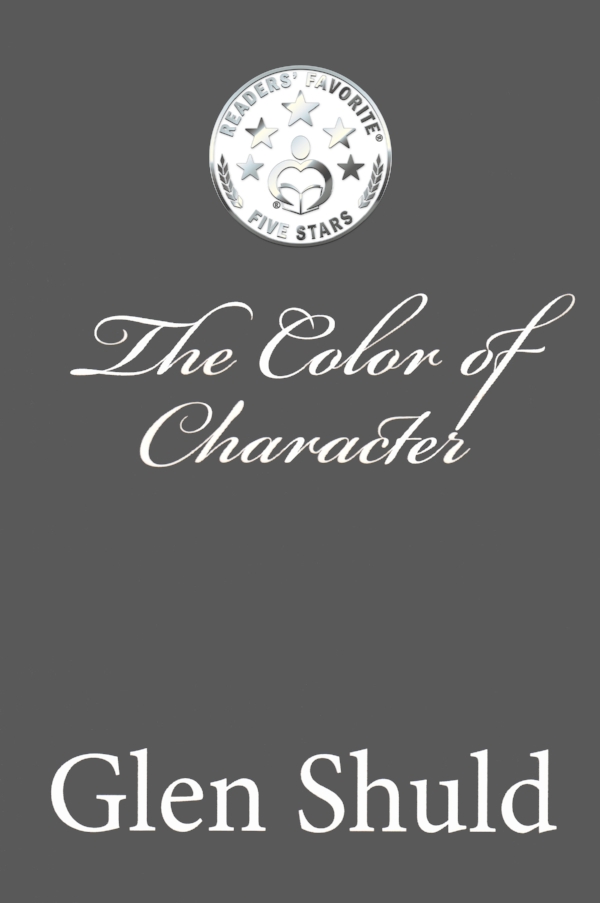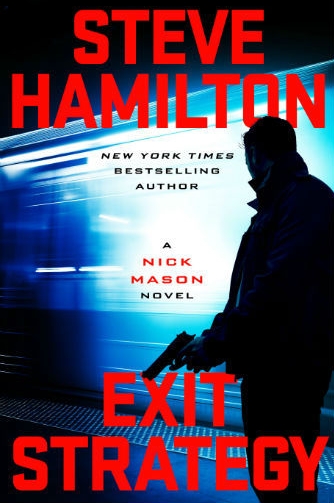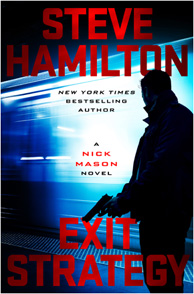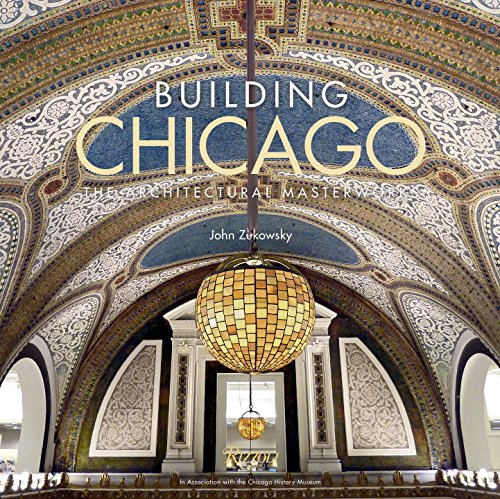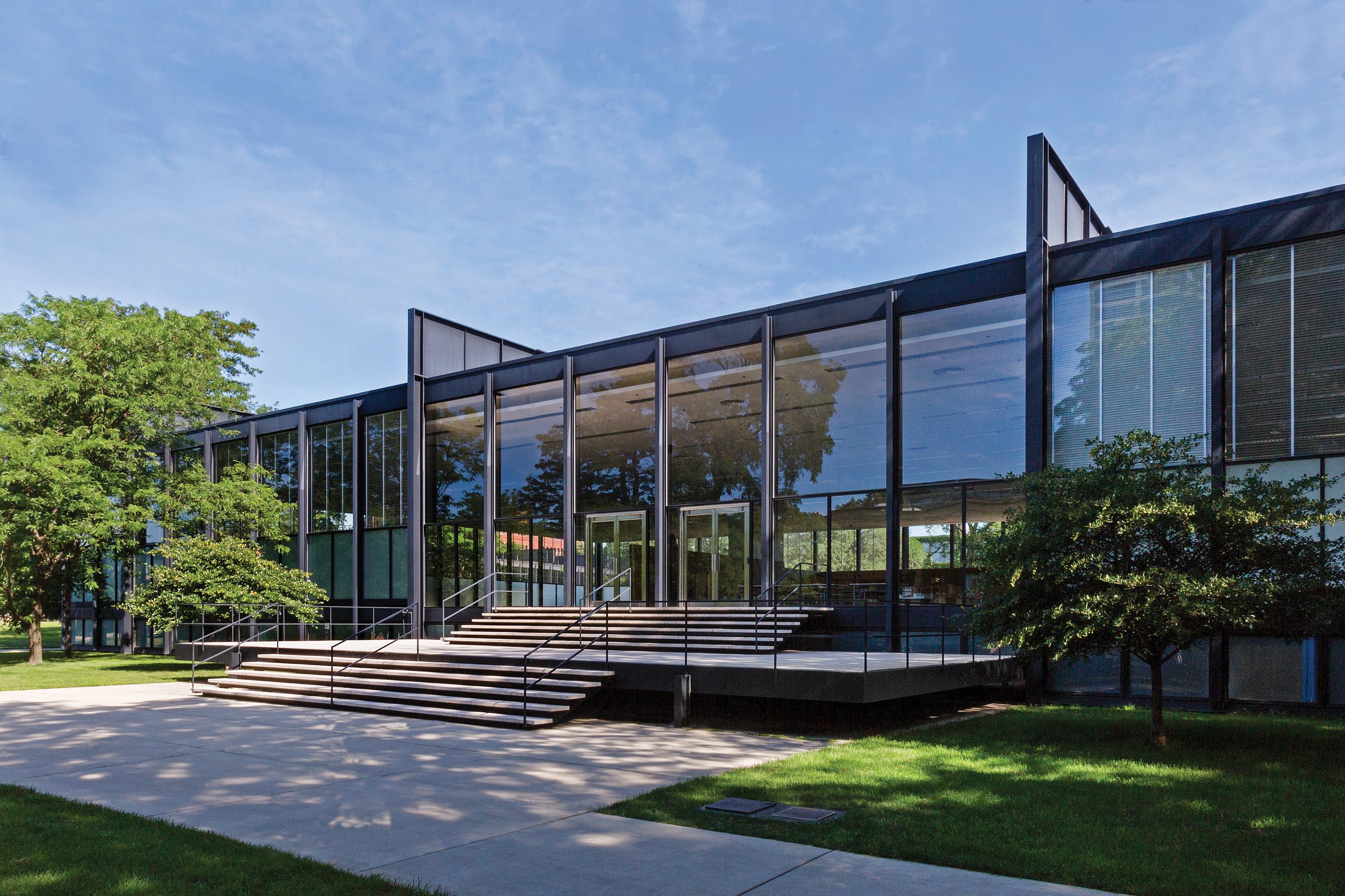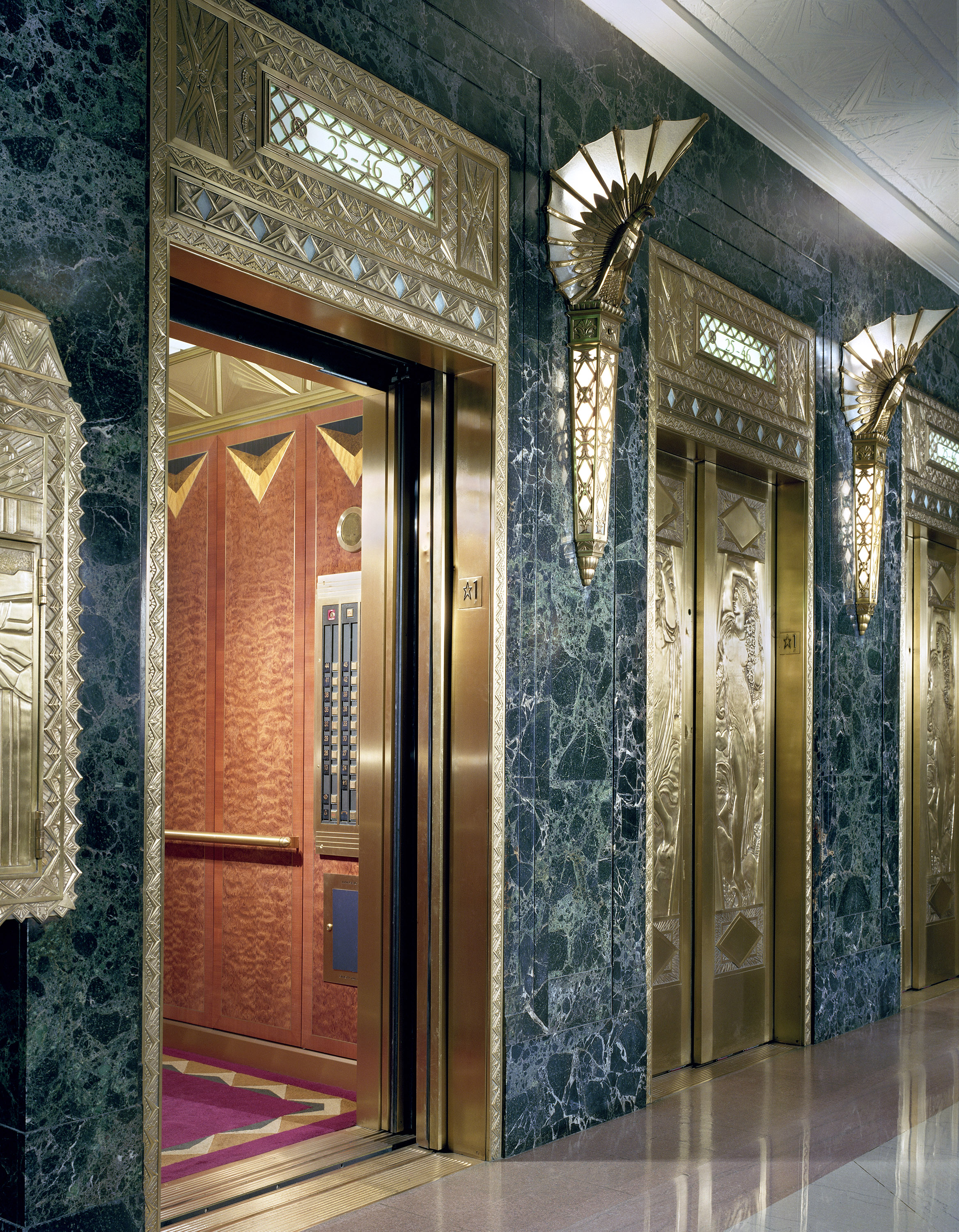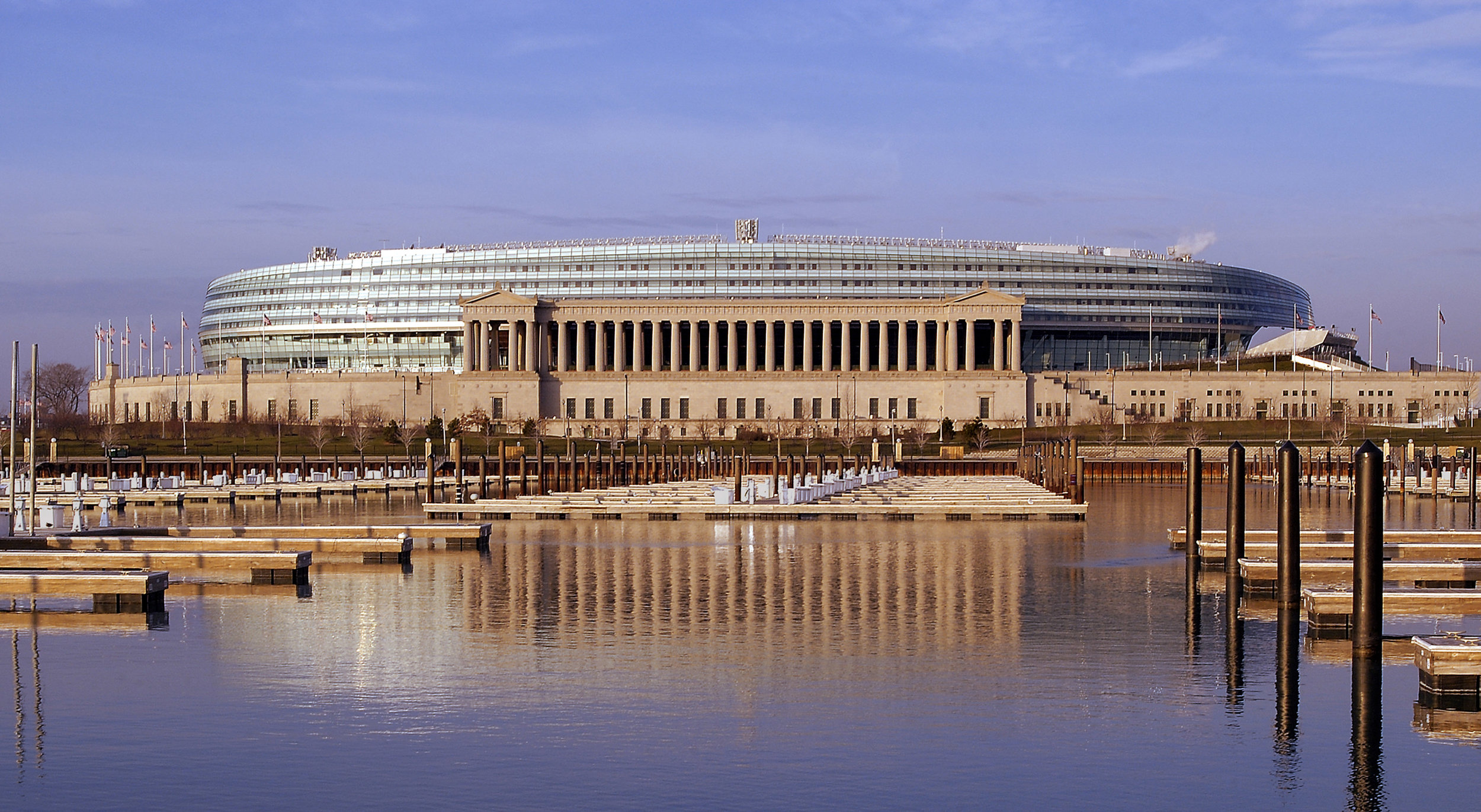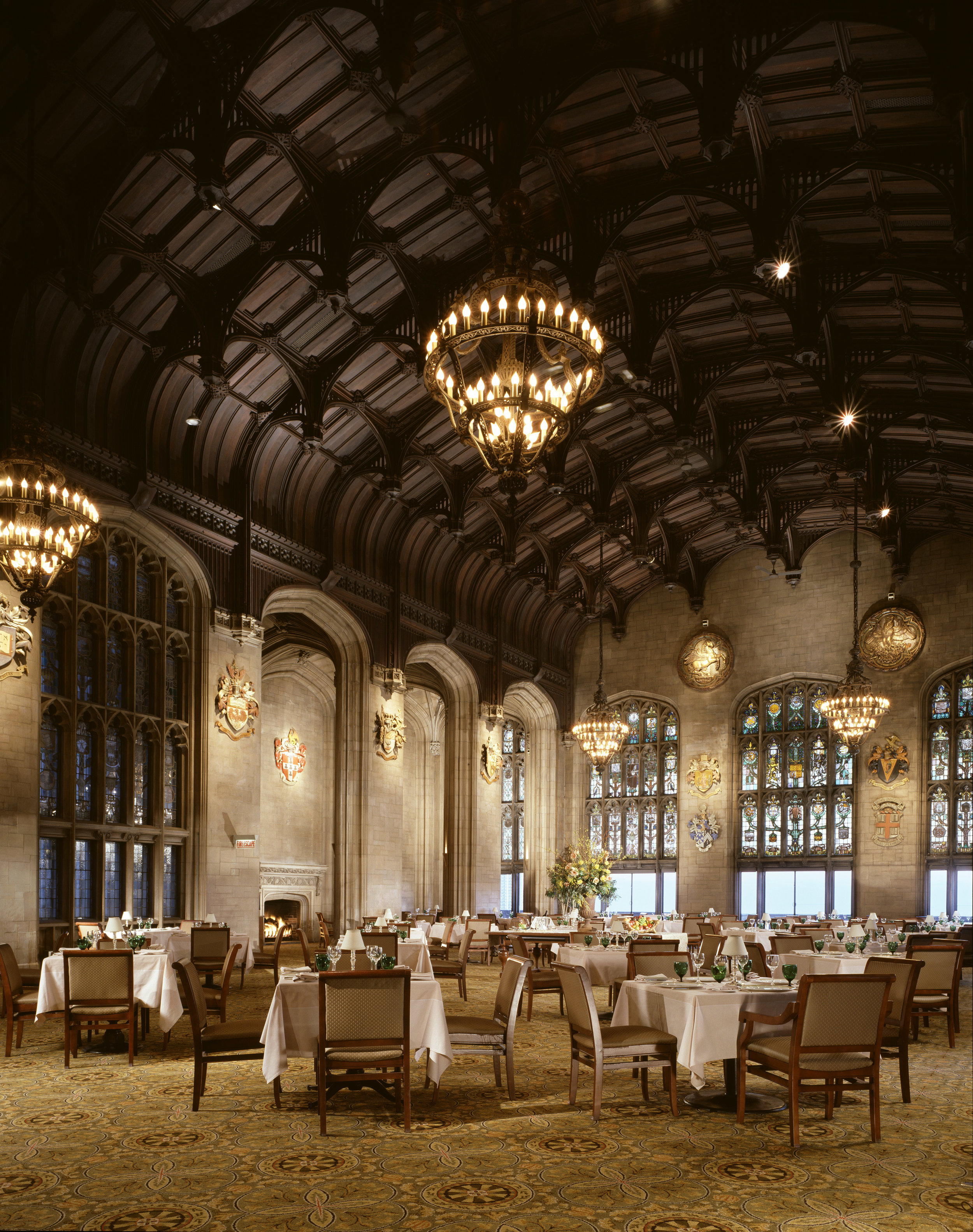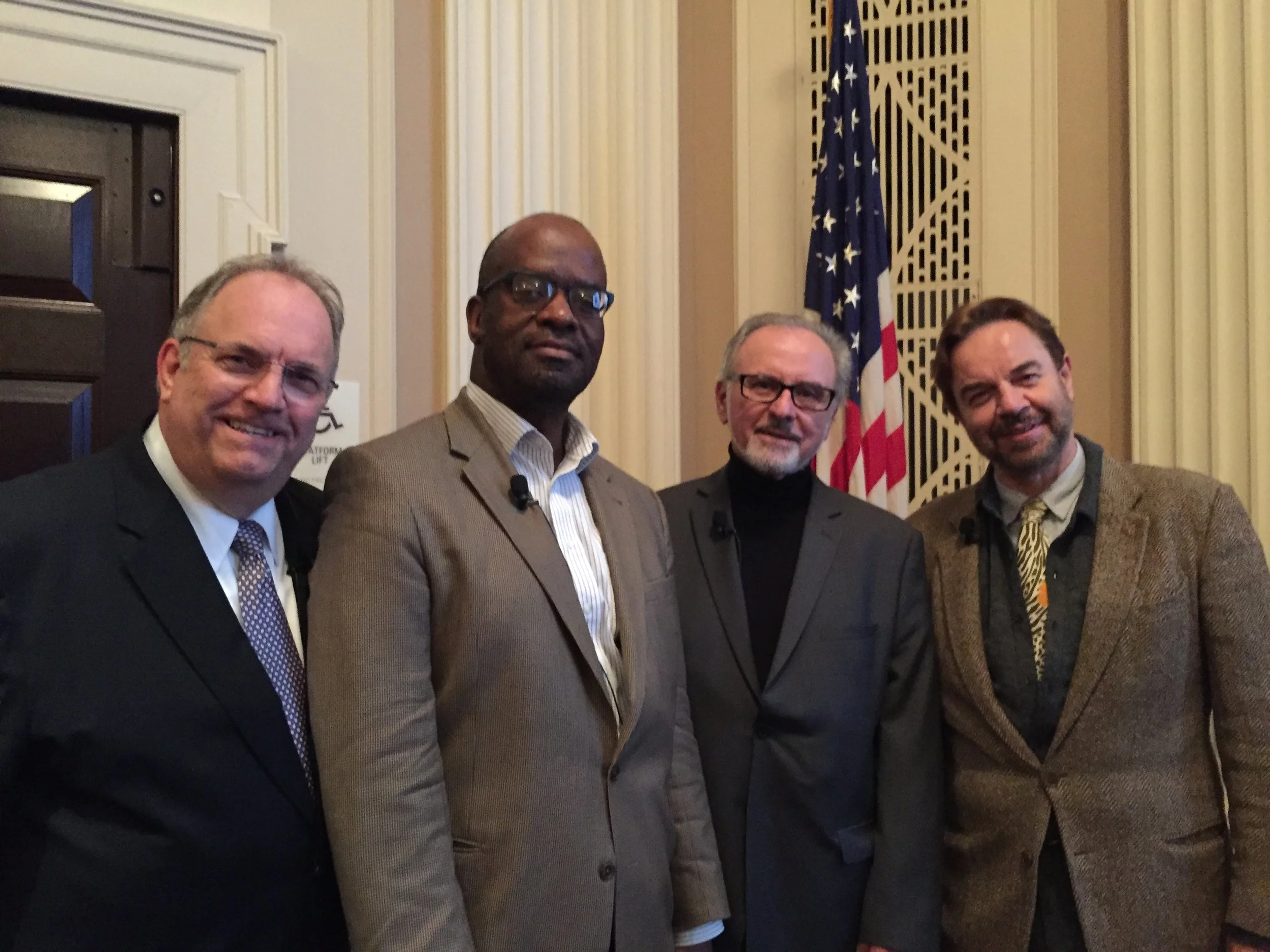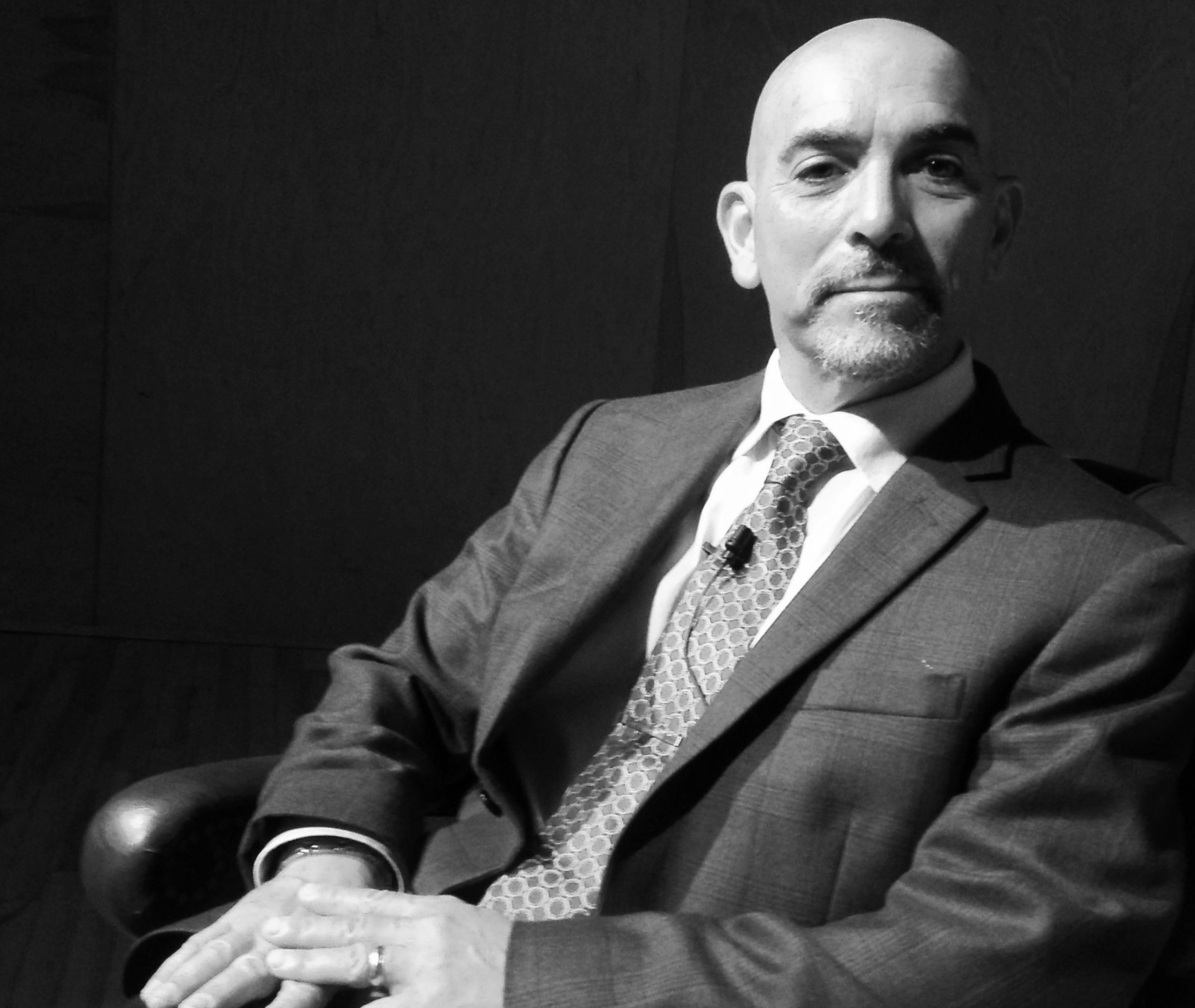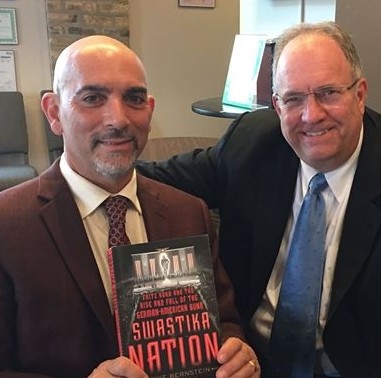Now comes Exit Strategy and Nick Mason returns deadlier than ever. We caught up with author Steve Hamilton for a conversation in Chicago on May 15th to talk about the new book, the Lionsgate film project that is underway, and what is it about the turbulent and violent world of Nick Mason that keeps us coming back for more.
On the first book in the series, The Second Life of Nick Mason …
“Nick Mason is a career criminal. That is something you understand about him from the first book. There’s no getting around that. You meet him in federal prison. He’s there for a good reason. It is not a case of him being falsely accused, either … He is not a fugitive trying to break out and prove that he is innocent … Throughout his career, he has lived by a code and had very strict rules for himself, to keep himself out of prison and to keep himself alive … it was when he broke those rules, and made a big mistake, that got him in prison in the first place … He is offered this deal that will let him walk out the door, not just walk out, but walk into a whole new life in a town house on the north side of Chicago, a restored Mustang he gets to drive around, a beautiful roommate, $10,000 cash every month, that’s really what the first book in the series is about … how Nick has to take that deal and finding out what the cost of it is.”
What drives Nick Mason …
“He knows what the terms of the deal are, but living through it is another story. Whenever that phone rings, 24 hours a day, 7 days a week, he has to answer it and go do whatever he is told, no matter what it is. He realizes that anybody he is close to could be in danger if he does not go along with these orders … That is a real fear he has, being watched all the time … on call all the time. It’s really like he has traded one prison for a new one.”
THE CAST OF CHARACTERS ...
Darius Cole …
“Darius Cole is the criminal mastermind, the head of an empire who is in prison with Nick Mason. He is a very smart person. He’s eight or nine moves ahead. He actually sees something in Nick that Nick does not even know is there, really … In fact, Nick even asks him, ‘You’ve got killers all around you, this whole cell block. You could take your pick. I’ve never killed anybody in my life and I don’t want to. Why would you pick me?’ That’s one of the mysteries of the first book, Nick finding out, as he goes out there, and as he does these things, he realizes that he does have certain talents that he didn’t know he had.”
Diana Rivelli …
“His roommate Diana is living in the same cage. She had a personal relationship with Darius Cole and was left in his town house to run some of the businesses."
Marcos Quintero …
“He is a former gang member … Darius Cole essentially bought him out of the gang … one more of his soldiers who have a special set of skills … He’s the man who watches over Nick, delivers the threats when they are necessary, gives him his assignments when it is time … He is essentially (Nick’s) handler in the outside world because Cole can not work with him directly.”
Nick Mason’s new adversary, Sean Burke …
“This guy is different. This guy is special. This guy actually had Nick’s job before Nick did. He was the old assassin who used to work for Darius Cole. He walked away from that job, the only guy who ever walked away from Darius Cole. That’s how tough this guy is … born to do this job. Nick Mason certainly was not ... So it is an interesting showdown between the new guy and the old guy who both have had the same job. Sean Burke is not the kind of guy who will sit around and wait, so he breaks out of this unbreakable place and he goes after Nick himself.”
On the new book, Exit Strategy …
“As we go into the second book, Exit Strategy, the missions for Nick Mason are becoming more and more dangerous and more brutal. He is finding it harder to hold on to the one thing, the one code, that he had left, which is that he didn’t want to kill anyone else other than the target. And, he is going to such great lengths in the first scene of Exit Strategy … He is going after his first target and he has to do so many things just to make sure he does not kill anybody else … He feels himself turning into this machine that Darius Cole was trying to create and he is losing himself, his humanity, so he has to get out.”
On Nick Mason’s new tactical advantages …
“The weapons are more complicated because the missions are more complicated. He is infiltrating a building and not just going to find one person, track them down and kill them. Now, he has to deal with several different people at once … he needs a non-lethal weapon for one purpose. He has a pistol for another purpose. When he infiltrates this underground bunker … He has this weird feeling. He feels like he is a special ops soldier almost, weighed down by all these grenades and things.”
The choice of Chicago as the backdrop for the series …
“Where you come from is a huge part of who you are. When I wrote about my former character, Alex McKnight, he is a Detroit cop. That’s just where he is from … When I was thinking about Nick Mason, I knew Chicago well enough, I thought, and it just seemed perfect that he would be a South Sider. That’s who Nick Mason is … he comes from a really rough neighborhood, in an amazing city. The other thing about Chicago is that you can come home to Chicago and not be home. He can go to the North Side and it is a different world from where he comes from and that’s the part of it that I wanted as well … of any city in the world that I have ever been to, none of them have quite the same sense of different worlds as Chicago does.”
A new point of view in Exit Strategy …
“The first book is mostly from Nick’s point of view as he is discovering his way in this whole new life … It just felt like Exit Strategy needed to be a little bigger because there are other players who all have their own agendas.”
About the Lionsgate film …
"The first book was optioned by Lionsgate and that is very much in the works … They will come to Chicago and actually film it here, which will be just fantastic."
On the next five books in the Nick Mason series …
“I am working on the next one now … I’m right in the middle of it. I really have seven of them already in my mind which is a whole different approach for me. … With Nick Mason I really want to know the bigger story, each book feels like it is just part of that bigger story. There are a lot of surprises at the end of Exit Strategy and it does open up into a different world.”
Nick Mason’s favorite beer?
“Goose Island.”
PODCAST ON ITUNES
STEVE HAMILTON WEBSITE
BOOK TOUR SCHEDULE
TWITTER
FACEBOOK
AMAZON
INDIE BOUND
SUBSCRIBE & JOIN THE CONVERSATION



